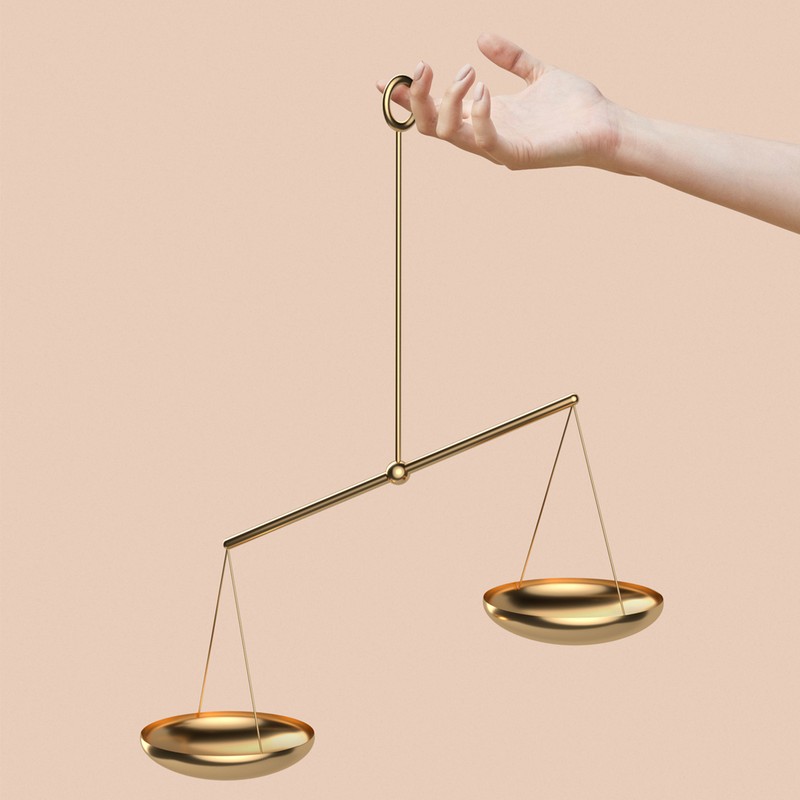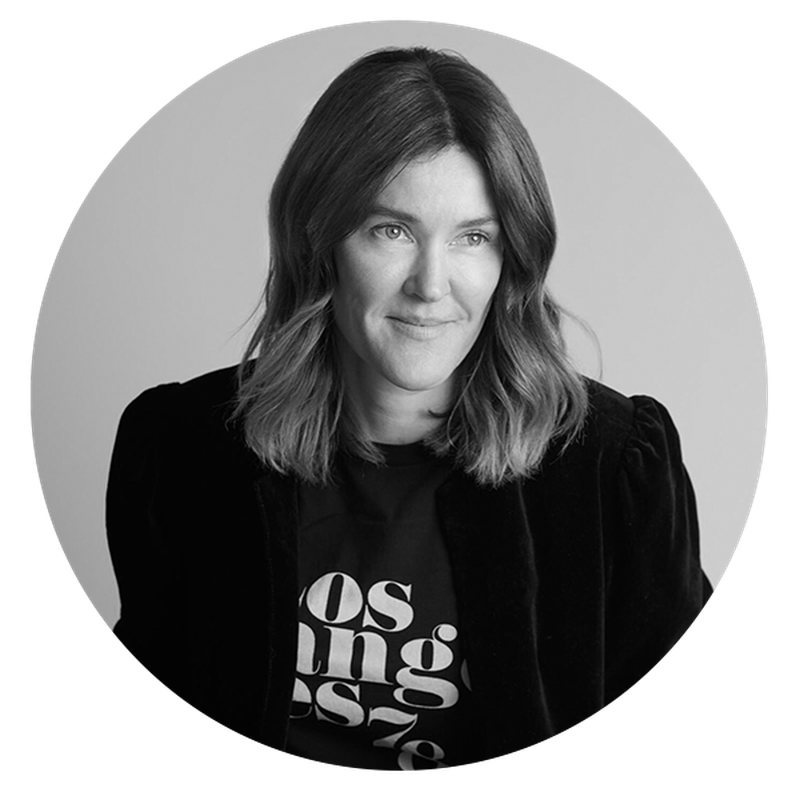
Why You May Not Be Losing Weight In Your 40s

You’re Not In A Calorie Deficit
“Fat loss is nuanced but at its very core is the scientific fact you need to be consuming less than you expend. And yes, we’re talking fat, not weight, here. You can lose weight through being dehydrated or going to the loo, which is one of the reasons you shouldn’t take too much notice of the numbers on the scales (FYI, a productive poo can weigh up to four pounds)."
"Sustainable fat loss – one to two pounds a week – means you’re looking at roughly 200-500 fewer calories per day. This is highly subjective and depends on many things, not least your lifestyle, job, age, exercise routine, medical history and any prescription drugs you’re taking. It’s just one of the reasons to invest in a personalised diet and nutrition plan.”
You’re Too Fad-Driven
“Women always lament the fact they’ve tried every diet going – from keto to celery juicing – yet never see success on the scales. The reason is simple. Overly restrictive eating is unsustainable and invariably ends in failure. The age-old saying that diets don’t work isn’t true, they do, but they only work for as long as you can stick to them. You need to find a way of eating that’s nutritious, filling, enjoyable, and one that you can make an integral part of your life.”
You Eat Like An Influencer
“Smoothie bowls may look good on Instagram, but have you ever stopped to think how much energy they’re packing? You can certainly squeeze lots of fruit and veg into them but blending reduces volume (and fibre), which means it’s not always easy to monitor portion sizes. A banana, cacao, oats, date, peanut butter, chia seed, milk and avocado mix can easily top 600 calories and that’s before you’ve added any toppings. I recommend making your smoothies predominantly veg based, with one or two portions of low-GI fruit like berries. Save your avocado for salads and try frozen cauliflower and courgette instead, both of which add a creamy texture and are undetectable once blended. Use measuring spoons, rather than heaping in peanut butter and remember nuts and seeds are very energy dense – one Brazil nut has 30 calories. It’s easy to over-estimate the healthfulness of certain foods – a phenomenon known as the ‘health halo’ effect. For example, a vegan, gluten-free or high protein item of food is often assumed to be ‘healthier’ and lower in calories, although this is rarely the case. In fact, many free-from foods are more energy dense and higher in sugar as they rely on a raft of extra ingredients to make them palatable.”
You’re Not Sleeping Enough
“After a poor night’s sleep, ghrelin (our hunger hormone) rises and leptin (our satiety hormone) lowers. This means that not only do we feel hungrier when we’re tired, but it takes more food to convince our brains we’re full. In fact, one study found we eat approximately 385 more calories after a night of tossing and turning. Anxiety, hot flushes, night sweats, getting up to go to the loo, work stress and alcohol are all common laments during midlife and potentially have a negative impact on how we sleep. Try to avoid screens in the evening; have your main meal three hours before bed; have a magnesium salt bath; and consider taking valerian root, which you can find in Pukka’s Night Time tea.”
Your Thyroid Is Sub-Optimal
“Thyroid hormones are responsible for brain function, metabolism, temperature control, gut health and bowel movements, amongst many other bodily functions. Our thyroid function tends to decline in our forties, becoming more inefficient and leading to unexplained weight gain. Subclinical thyroiditis isn’t always obvious and might evade your GP’s investigations, but it still means your thyroid isn’t firing on all cylinders. The only way to truly know is to get a full panel test that includes, not just TSH, but also TPO antibodies and free T3 and T4.”
You’re Fasting Incorrectly
“Intermittent fasting (IF) only works for weight loss if you’re in a calorie deficit. Despite the huge amount of buzz this approach to eating gets, it isn’t magic. You can be fasting for 16 hours straight a day, but if you’re consuming more calories in your eight-hour eating window than you’re utilising, you won’t lose weight. For this reason, fasting shouldn’t be recommended as a blanket weight loss tool and it certainly isn’t advisable for anyone with a history of disordered eating. Speak to a registered nutrition professional who can advise you on the safest and most effective protocol for you.”
You’re Losing Muscle Mass
“Muscle is important as it’s metabolically active (unlike fat) so the more lean muscle you have, the more calories you burn throughout the day. Sarcopenia, which is loss of muscle, starts to kick in around our early thirties. Sarcopenia doesn’t just affect your athletic performance, it also impacts your longevity, affects your bone health and in the long term leads to falls and fractures. Monitor your protein intake (aim for 1-1.5g per kg of bodyweight spread out across the day) and start weight-bearing exercise. The benefits to the body are numerous, not least an increased sense of strength, energy and wellbeing. Rapid weight loss and long-term fasting can exacerbate muscle wastage; another reason to go low and slow when it comes to weight control.”
You’re Eating Little & Often
“The majority of us don’t need to be snacking. Focus on satiating, balanced meals that taste good and are robust enough to keep you going until it’s time to eat again. It might be worth unpacking why you feel the need to snack – perhaps it’s boredom, fatigue, loneliness, stress or anxiety, or not eating enough at mealtimes. If you do feel the need to snack, ensure it is protein-based – try boiled eggs, rye crackers with hummus, Greek yoghurt with berries, or a pear with nut butter.”
You Exercise Four Times A Week
“Hitting the gym four times a week is great, but it only equates to four out of a possible 84 daylight hours. What are you doing for the rest of the time? NEAT (non-exercise activity thermogenesis) is the activity you do that’s not planned exercise and it’s super important. Lots of women come to see me who are getting up at 5am to do a punishing two-hour gym session but then spend the rest of the day exhausted and sedentary. Try to reclaim your lunch hour with a walk and aim for 12,000 steps a day. Also consider cycling to work, walking up escalators or standing on the bus – anything to break up the amount of time you spend sitting down.”
You Let Loose At The Weekend
“Often women will monitor their food religiously during the week but forget the alcohol they consume over the weekend. Let’s say you’ve been eating in a calorie deficit all week and then you enjoy a bottle of wine each night from Friday to Sunday, that’s potentially an extra 1,800 unaccounted calories. And we all know only too well that alcohol leads to making poorer food choices and late-night bingeing.”
You’re Forgetting Fibre
“One of the ways our brain determines fullness is through the physical stretching of the stomach. Foods high in fibre, such as vegetables and wholegrains, fill the stomach and signal to the brain you’re full. Fibre also tends to slow down digestion, meaning when you add it to your meals, the rate at which the body digests your food takes longer. So, the longer food sits in your stomach, the fuller you’ll feel. To add to its already impressive CV, fibre happens to be brilliant for gut health, excreting excess oestrogen, lowering cholesterol and reducing your risk of metabolic conditions such as diabetes.”
You’re Impatient
“Be patient, fat loss is a marathon not a sprint and it’s rarely linear; expect ups and downs, which are a totally normal part of the journey. Be persistent and trust the process, you’ll get there, it just takes time. Ultimately, though remember this: your worth is not measured by your weight.”
For more midlife insights, recipes and health tips, follow Emma on Instagram @Emma.Bardwell or book in for a free 15 minute nutrition chat here.
*DISCLAIMER: Features published by SheerLuxe are not intended to treat, diagnose, cure or prevent any disease. Always seek the advice of your GP or another qualified healthcare provider for any questions you have regarding a medical condition, and before undertaking any diet, exercise or other health-related programme
DISCLAIMER: We endeavour to always credit the correct original source of every image we use. If you think a credit may be incorrect, please contact us at info@sheerluxe.com.

